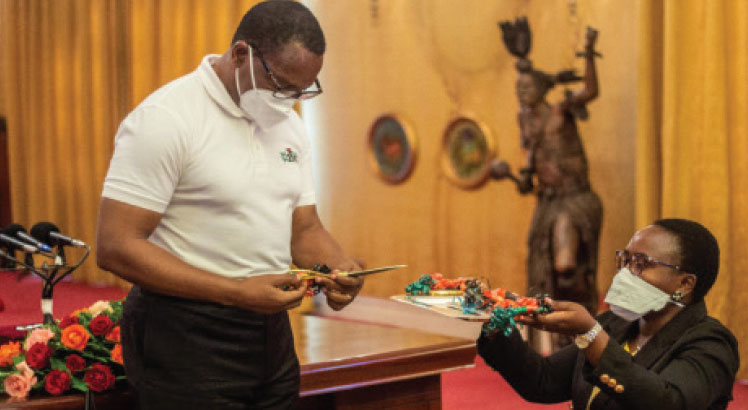Icam tips government on industrialisation
The Institute of Chartered Accountants in Malawi (Icam), an umbrella body of accounts professionals in the country, says for the country to achieve industrialisation, government should champion investment processes.
In a statement of resolutions following the recent Icam conference, Icam president Phyles Kachingwe said it is a normal practice globally that government investments facilitate quick industrialisation.
Kachingwe said: “For Malawi to industrialise, the government must intervene. In the United States of America, the government supported the industrialisation process and so, too, in Great Britain and China.

“Nevertheless, Malawi must transform from a regime overly preoccupied with growth dampening macroeconomic stability into one that is growth focused and export-oriented”.
In the statement, Icam bemoans that Malawi has for a long time been a member of the Least Developed Countries (LDCs); hence, it was imperative that the accountants and all other professionals work harder and smarter to realise an inclusively wealthy and self-reliant industrialised middle income economy in line with the Malawi 2063 (MW2063) development agenda.
The country’s industrial growth remains constrained, but MW2063 envisages that by 2030, which is nine years from now, the country will have attained the middle-class economy status.
Reserve Bank of Malawi (RBM) governor Wilson Banda when he recently appeared before the Public Accounts Committee of Parliament said government, through the Export Development Fund (EDF), plans to invest $950 million (about K769 billion) in the development of two export oriented Special Economic Zones Industrial Parks at Matindi in Blantyre and Area 55 in Lilongwe, covering 546 hectares.
The investment, he said is expected to create 240 000 direct jobs and the funding requirements will be secured from the African Export-Import Bank (Afreximbank) facility.
Banda said: “We are convinced that the role of EDF in mobilising and availing development finance has become even more pronounced at this time when the country is suffering massive devastating effects of the Covid-19 pandemic which have greatly dislocated various sectors of the economy.”
Principal secretary in the Ministry of Industry Peter Simbani said the ministry is working to facilitate industrialisation through industrial parks and Special Economic Zones to be implemented in the country, starting with Matindi in Blantyre and Area 55 in Lilongwe.
Simbani said they are working on the policy and legal framework review, including a Bill being finalised to facilitate the establishment of special economic zones and Industrial Parks to offer preferential soft business conditions, including tax incentives to investors.
He said the developments are critical for the growth of the economy by ensuring that the industry sector moves from its current nine percent contribution of gross domestic product to 12 percent by 2030 when the country envisages to attain middle-income economy in line with the Malawi 2063.
National Planning Commission director general Thomas Chataghalala Munthali said what the country needs are few tangible projects within the three pillars of MW2063 and the seven enablers that support it.
He said: “All we need to graduate into a middle-income economy are a few big infrastructure projects, few agricultural commercial investments, a couple of big mines and few industrial projects.
“If we focused on few projects without spreading our resources thinly, this talk of Malawi being among the poorest will be history by 2030, not even 2063.”
The MW2063 seeks to transform Malawi into a wealthy and self-reliant industrialised upper middle-income country by 2063.




